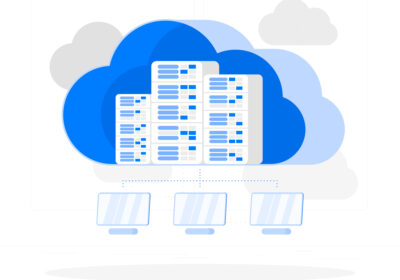Software development, the very foundation of the digital age, is constantly pushing the boundaries of innovation. From streamlining everyday tasks to revolutionizing entire industries, software solutions are shaping our world like never before. But what does the future hold for software development? What trends and advancements will define the years to come? This comprehensive exploration delves into the exciting possibilities that lie ahead, exploring the future of software development and its implications for businesses and users alike.
A Look Back to Propel Us Forward: The Enduring Value of Custom Software Development
Before we delve into the future, let’s revisit the cornerstone of software development – custom software. Unlike off-the-shelf solutions that cater to a generic audience, custom software development offers a bespoke approach. It allows businesses to tailor functionalities to their specific needs, ensuring a perfect fit for their unique operations and workflows.
The benefits of custom software development are numerous:
- Enhanced Efficiency & Productivity: Custom software streamlines processes, automates repetitive tasks, and integrates seamlessly with existing systems, boosting overall efficiency and productivity.
- Improved User Experience: Custom solutions prioritize the user experience, catering to the specific needs and behavior patterns of the target audience. This translates to a more intuitive and user-friendly experience.
- Competitive Advantage: In today’s dynamic business landscape, custom software empowers companies to differentiate themselves with features and functionalities that address their unique market position.
- Scalability & Flexibility: Custom software is built to grow alongside your business. Scalable architecture ensures the software can accommodate future expansion and evolving needs.
- Enhanced Security: Custom software development allows for robust security measures to be built-in from the ground up, mitigating the risks associated with generic solutions.
As we explore the future of software development, the core principles of custom software development will remain relevant. However, the way we build, deploy, and interact with software is poised for a significant transformation.
The Future Beckons: Key Trends Shaping Software Development
The future of software development is a vibrant tapestry woven with exciting trends and advancements. Here are some of the key areas to watch:
- The Ascendancy of Artificial Intelligence (AI) & Machine Learning (ML): AI and ML are no longer futuristic concepts. Their integration into software development will revolutionize the way applications learn, adapt, and interact with users. AI-powered chatbots, intelligent automation, and machine learning algorithms that personalize user experiences are just a glimpse of what’s to come.
- The Rise of Low-Code/No-Code Development Platforms: These platforms empower individuals with limited coding knowledge to build basic applications. While not a replacement for full-fledged development, they can democratize app creation and enable rapid prototyping for businesses with simpler needs.
- The Continued Evolution of the Software Development Life Cycle (SDLC): The SDLC, the structured roadmap for software development, will adapt to accommodate new technologies and methodologies. Agile development practices will continue to gain traction, emphasizing continuous integration and delivery (CI/CD) for faster development cycles and quicker time-to-market.
- The Prominence of Cloud-Native Development: Cloud computing offers a scalable and cost-effective platform for software development. Cloud-native development, which leverages the inherent capabilities of cloud platforms, will be at the forefront, enabling rapid deployment, easier maintenance, and global accessibility.
- The Security Imperative: As software becomes more sophisticated, so too do the threats. The future of software development will prioritize robust security measures throughout the entire development lifecycle, safeguarding user data and mitigating cyberattacks.
- The Age of Immersive Technologies: Augmented Reality (AR) and Virtual Reality (VR) will transcend the realm of entertainment and find applications in various sectors, from training simulations to product visualization. Software development will play a crucial role in creating immersive experiences that enhance user engagement and interaction.
- The Focus on User Experience (UX) & Human-Computer Interaction (HCI): The future of software development will center around creating intuitive and user-centric experiences. Human-computer interaction (HCI) principles will be paramount, ensuring seamless interaction and fostering a sense of user delight.
The Road Ahead: Implications for Businesses and Software Development Companies
The evolving landscape of software development presents both challenges and opportunities for businesses and software development companies alike. Here’s how to navigate the road ahead:
Businesses:
- Embrace Continuous Learning: Staying abreast of emerging trends and technologies is crucial. Invest in learning about AI, cloud computing, and other advancements to understand their potential impact on your business.
- Identify Strategic Software Needs: Carefully evaluate your business needs and challenges. Custom software development remains a powerful tool to gain a competitive edge.
- Seek a Forward-Thinking Development Partner: Choose a software development company that embraces innovation
Businesses (continued):
- Choose a Software Development Company that Embraces Innovation: Partner with a development company that stays ahead of the curve, possesses expertise in relevant technologies like AI and cloud computing, and prioritizes a future-proof development approach.
- Invest in User Experience: Prioritize user experience (UX) design to ensure your software is intuitive, user-friendly, and delivers exceptional value to your target audience.
Software Development Companies:
- Upskilling & Reskilling the Workforce: Invest in continuous learning and development programs for your team, equipping them with the skills necessary to thrive in the future of software development (e.g., AI, machine learning, cloud development).
- Adopting Agile Methodologies: Embrace agile development practices to promote flexibility, rapid iteration, and quicker response to market demands.
- Building Security into the SDLC: Integrate robust security measures throughout the entire software development lifecycle, safeguarding software from vulnerabilities and protecting user data.
- Staying at the Forefront of Innovation: Continuously explore and experiment with emerging technologies like AR/VR, low-code/no-code platforms, and AI to offer a wider range of solutions to clients.
Verbat Technologies: Your Partner in the Future of Software Development
Verbat Technologies understands that the future of software development is not just on the horizon, it’s here. We are a forward-thinking software development company in Dubai, dedicated to providing our clients with cutting-edge solutions that empower their businesses for the years to come.
Here’s how Verbat positions you for success in the evolving software development landscape:
- A Team of Technology Experts: Our team comprises skilled developers, designers, and project managers who possess expertise in the latest technologies and development methodologies.
- Custom Solutions for Unique Needs: We don’t believe in one-size-fits-all solutions. We take the time to understand your specific needs and challenges, crafting custom software that seamlessly integrates with your existing systems and workflows.
- Agile Development Approach: We leverage agile development methodologies to ensure flexibility, continuous improvement, and faster time-to-market for your software solutions.
- Focus on Security & User Experience: Security and user experience are paramount at Verbat. We build robust security measures into the software development process and prioritize user-centric design for an exceptional user experience.
- Embrace of Innovation: We constantly explore and integrate emerging technologies into our development process, ensuring your software solutions remain future-proof.
Conclusion: A Collaborative Future
The future of software development is a story yet to be fully written. It’s a future shaped by collaboration – between businesses and development companies, between humans and technology, and between innovation and practicality. By embracing continuous learning, prioritizing user experience, and leveraging the power of emerging technologies, we can navigate this exciting future and unlock the transformative potential of software development.





